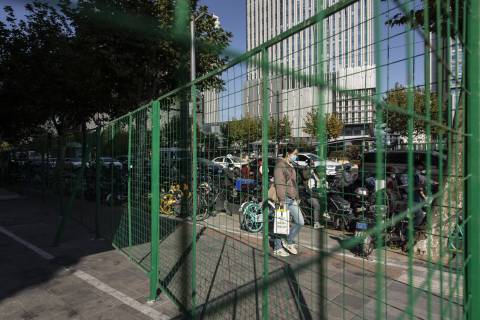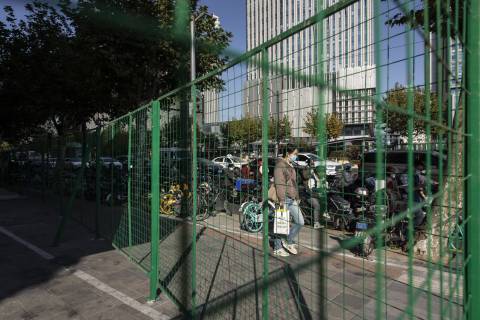(Bloomberg) -- China’s stringent Covid Zero regime is once again upending the nation’s car manufacturing sector with at least three major automakers shuttering production because of virus restrictions.

Japan’s Honda Motor Co. suspended its operations in Wuhan, the virus epicenter in early 2020, because of limitations around movement introduced in the area. Whether the plant will remain closed through Wednesday hasn’t been decided, a spokesperson said Tuesday. Honda also extended the suspension of operations at another plant producing engines for lawn mowers in Chongqing.

Motorcycle maker Yamaha Motor Co. is also partially suspending production at its motorcycle plant in Chongqing, where 8,721 new Covid cases were reported Nov. 28. Other Japanese carmakers including Nissan Motor Co., Mazda Motor Corp. and Mitsubishi Motors Corp. told Bloomberg their China operations haven’t been impacted yet.
Toyota Motor Corp., the world’s No. 1 carmaker, is adjusting production at parts of its Chinese factories due to multiple factors, spokeswoman Shino Yamada said, declining to elaborate.
On Monday, German carmaking giant Volkswagen AG blamed a component shortage as the main factor behind the decision to halt production at a joint venture plant that it has with China FAW Group Co. in Chengdu and two of five production lines at its factory in Changchun. There are currently no estimated dates for resumption and no plans to move to so-called closed-loop operations, a spokesperson said.
First used during the Beijing Winter Olympics as a way of keeping athletes and support staff separate from the wider population, closed-loop systems, or factory bubbles, are a China invention used to keep businesses running amid punishing efforts to stamp out Covid’s spread. They typically require workers to travel from on-site accommodation to a factory and back, strictly avoiding contacts with outsiders.
Several carmakers, including VW and Tesla Inc., used them earlier this year, with the US electric vehicle maker making headlines for even insisting workers sleep on the floor during the months-long Shanghai lockdown. But the system has faced challenges recently, with workers at the world’s biggest iPhone factory in Zhengzhou pushing back at restrictions, impacting plant production.
Public anger over China’s draconian approach to stamping out infections however has risen in recent weeks, with authorities deploying a heavy police presence in the capital Beijing and other major cities to deter a repeat of demonstrations that broke out over the weekend. That may make companies less willing to keep employees effectively locked up on site for extended periods.
The demonstrations were sparked after 10 people were killed in an apartment block fire in Urumqi, the capital of the far western Xinjiang region, a city that has been under lockdown for more than three months. Some citizens have questioned whether Covid controls hampered rescue efforts, and protestors have also been expressing opposition to the wider Covid policy.
--With assistance from Tsuyoshi Inajima, Chunying Zhang and Masumi Suga.
(Updates with line on Toyota in fourth paragraph.)
More stories like this are available on bloomberg.com
©2022 Bloomberg L.P.
Author: Katrina Nicholas
